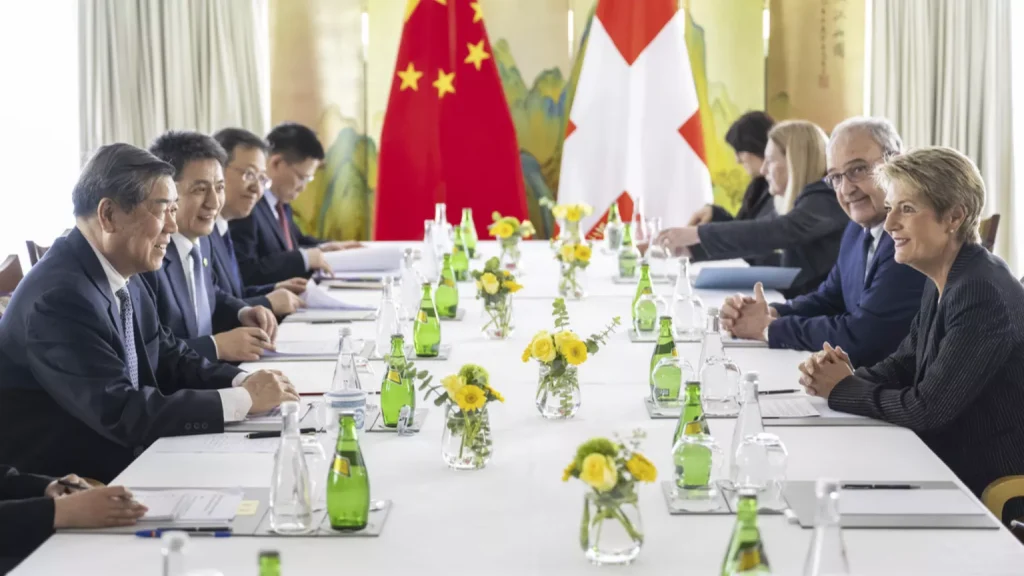
Geneva, May 12: Following two tense days of diplomacy in Geneva, the United States and China reached a deal on the creation of a new mechanism for trade consultation, marking a tentative step ahead of repairing contentious trade relations hit by surging tariffs and retaliation.
China’s Vice Premier He described the talks as “candid and constructive,” saying that both sides have pledged to iron out their differences through further talks. “This meeting has laid the foundation and created the conditions for deeper cooperation,” he said on Sunday.
Though the short-term effect on tariffs is negligible—American tariffs on Chinese products still stand at an eye-watering 145%, with China retaliating in kind—officials were hopeful that the platform would reduce tensions in the long run.
U.S. Treasury Secretary Scott Bessent verified that the negotiations were “productive,” saying that further information would be announced Monday. U.S. Trade Representative Jamieson Greer seconded that, referring to it as a “very constructive two days,” and underscored the promise that the negotiations have of aiding to deal with what he referred to as a “national emergency.”
The newly announced platform for consultation will be led by Vice Premier He and assisted by several “working teams” on both sides, tasked with having regular and ad-hoc exchanges on major trade and economic concerns. The details of the platform—like timetables and venues for subsequent meetings will be jointly determined.
A cautionary note was sounded in turn from inside China with Assistant Foreign Minister Miao Deyu strongly condemning American trade practices as “unilateral, protectionist, and economically coercive.” While not officially linked to the negotiation result, the remarks indicate the tenuous political context of the talks.
WTO Director-General Ngozi Okonjo-Iweala commended the efforts, saying the deal “is a major step forward” not only for the U.S. and China but also for global market stability, particularly vulnerable economies that have been hit by the trade war.
There is doubt that the new mechanism will result in real reductions in tariffs or merely postpone further escalation despite the upbeat assurances from the negotiators. According to experts, while some progress has indeed been achieved, real change will depend on complex political maneuvering on both sides.
Former U.S. trade official Emily Kilcrease said: “This is about packaging the inevitable tariff adjustments in a politically viable way.”
President Donald Trump, in a Truth Social post on Saturday, credited the talks positively but offered few details: “A very good meeting today with China, in Switzerland. Many things discussed, much agreed to.”
The trade conflict has had a crippling effect on bilateral trade, which has slowed to a trickle under high-powered regimes and mounting non-tariff barriers, such as import restrictions and administrative barriers on strategic commodities.
As the two countries get ready to issue a joint statement on May 12, international markets and political analysts will be keenly observing whether this framework is indeed a watershed moment or just a cease-fire in an escalating economic competition.
for more news visit questiqa.com




